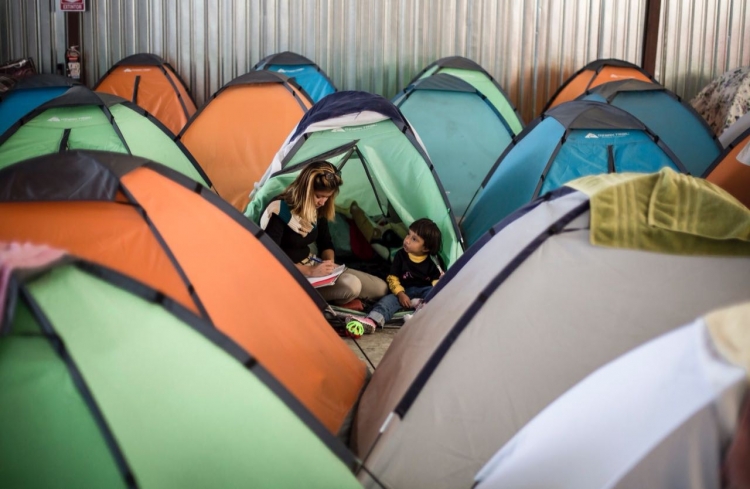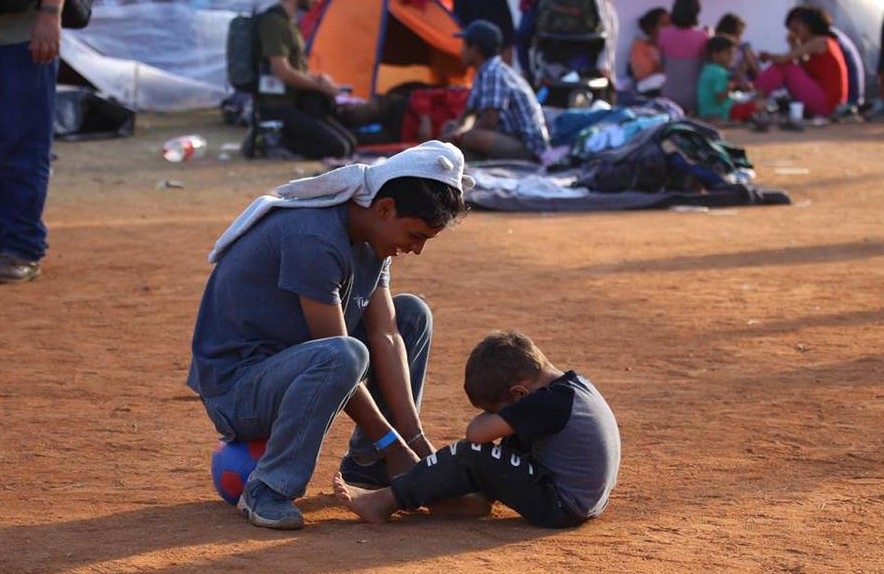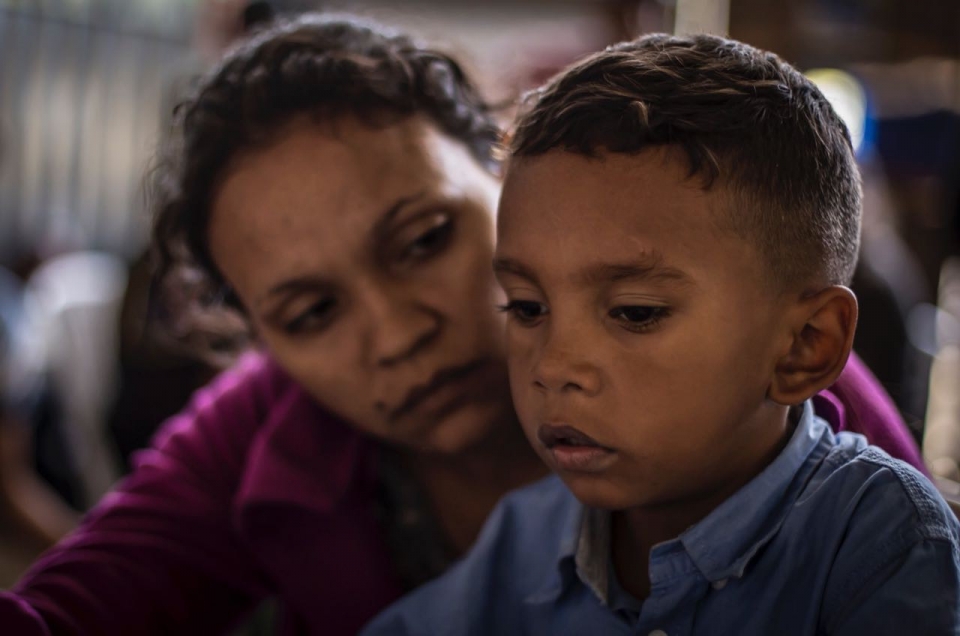
In September, a 21-month-old baby and his mother were found dead in South Texas. Idalia Yamileth Herrera Hernandez and her young son had traveled from Honduras and applied for asylum in the United States. Under the new “Remain in Mexico” policy, they were sent back to Matamoros to wait for a hearing. After two months of waiting in Mexico, sleeping in shelters or on the streets, Idalia decided to risk crossing the Rio Grande to join her husband and children in North Carolina. She never made it across.
They are just two of thousands who have been killed or injured either in immigrant detention in the U.S. or trying to cross into the country.
Take action today: Tell Congress to protect asylum seekers!
As I listen to the racist anti-immigrant rhetoric from the Trump administration, and watch the devastating policies that follow it, I can’t help but fear for everyone making that dangerous journey. But rather than become numb to tragedy, we must do everything in our power to change these deadly xenophobic policies, and instead respect everyone’s right to migrate.
When I see news like that of Idalia and her son, I think of the people I met in some of the migrant caravans in Mexico last year. I traveled through Chiapas with a caravan of about 2,300 people, most of whom had come from El Salvador, and met with other groups in Mexico City and in shelters in Tijuana.
All were Central Americans headed towards the United States.
I think of Mario*, an 18-year-old boy I met in Tijuana who cried as he told me about fleeing Honduras by himself and then joining the caravan for protection. Mario explained that he had been taken from his family and forced into an orphanage when he was 10. When he turned 18 and was finally free to leave, he went back to his neighborhood, anxious to see his family, but found that several of them had been killed by gangs in the eight years he had been away. He did find his mother, though, who has severe disabilities and was struggling to take care of his two sisters. Tears streaming down his face, Mario told me that he had to leave because within a few months of being home, a local gang said they would kill him if he didn’t join them. “I don’t want to hurt anyone,” he told me. “I just want to take care of my mom and sisters.”

Instead of helping Honduras stem this kind of violence and support those who live there, the U.S. is putting political and economic pressure on Honduras and several other countries to lock their people in -- a clear violation of international law. So, the U.S. is encouraging human rights abuses in other countries and then denying people the right to seek safety from those same abuses. Today, migrants who reach our borders are met with military force, months of waiting, and deadly detention.
Migration has happened throughout human history. Yet the Trump administration demonizes migrants in a racist effort to divert billions of dollars – that should be funding schools, health care, and human needs – to turn border communities into war zones and expand the U.S.’s cruel and unnecessary detention system.
At the same time, there is nothing inevitable about this exodus of people from Central America. People do not leave their homes to travel 2,000 miles, over dangerous terrain to a country whose government is actively hostile to their arrival, unless they have very good reasons to do so.
Like Mario, hundreds of thousands of people are making the difficult choice to leave their home countries because of the intersecting realities of poverty, violence, and the impacts of climate change in a destabilized region. And that region is destabilized, in part, due to interventions by the U.S. government.
The U.S. has supported coups in Central America as far back as 1954 in Guatemala and as recently as 2009 in Honduras. The U.S. ignores corruption and human rights violations by Central American governments and continues to provide military training, arms, and aid.
Many people on the caravan told me they had joined because they were in an economically untenable situation – that they wanted to come to the U.S. so they could support their mothers, their children, their families.

But it is impossible to separate poverty and lack of economic opportunity from the violence that makes earning a living all but impossible. Corruption and extortion make it very difficult to open a small business or find any way to earn a decent living. Fear of violence makes it hard to work, go to school or engage in the essential activities of daily life. When I asked people what they thought would happen when they got to the border, people told me over and over “it’s in God’s hands,” or “we hope to change Trump’s heart.”
I don’t know if Trump’s heart can be changed. But I know that political will can be.
Migration emerges from necessity. Traveling in caravans make an unbelievably difficult choice a little less dangerous for the thousands taking part. But they are also their own expression of political will; they refuse to quietly accept either an untenable life under corrupt governments or the isolation and danger of journeying alone. Instead, the caravans are collectively negotiating with state and local governments for shelter, asylum, or safe passage.
I often wonder what happened to Mario. Did he wait for months in Tijuana to try to ask for asylum? Was he sent back to one of the most dangerous cities in the world to wait for a hearing, like Idalia and tens of thousands of others under the “Remain in Mexico” program? Did he choose, like Idalia, to make the dangerous, potentially deadly crossing into the U.S.? Is he in one of the same detention centers where seven Guatemalan children and dozens of adults have recently died?
Mario, Idalia, and all migrants deserve dignity, and their rights should be respected – including their right to migrate. We need to respond with collective action of our own – at the border, in Washington, D.C., and in communities across this country. We need to say no to more funding for border militarization and detention and deportation.
There are hundreds of thousands of people in the U.S. who believe that we are stronger communities and a better country when we welcome migrants and recognize that everyone has a right to live in safety and peace. It’s up to us to meet the courage of the migrants with our own courage to make that vision a reality.